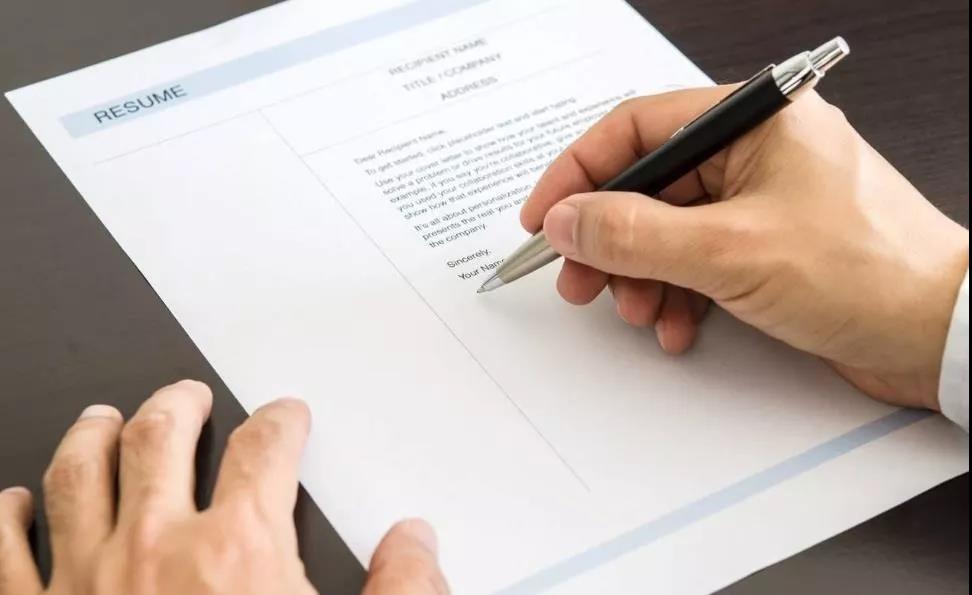高中英语知识点第1篇表比较的介词:as,like,over,above等。两者都可以表示像……as作连词,引导比较状语从句;从句中的动词或整个谓语部分往往可以省略。as和like都可作介词,译为下面是小编为大家整理的高中英语知识点汇编8篇,供大家参考。

高中英语知识点 第1篇
表比较的介词:as, like, over, above等。
两者都可 以表示"像……"as作连词,引导比较状语从句;从句中的动词或整个谓语部分往往可以省略。as和like都可作介词,译为"像……一样",但有区别:as侧重同一性,强调属同一类或完全相似;like侧重于比较,是比喻,并不意味着同一类或完全相似。
Then I made faces jumped like a 接着我做鬼脸,并像猴子一样跳来跳去。
She spoke of me as her dearest 她谈起我就像我是她最亲密的朋友似的。
试比较:
Let me speak to you as a 让我作为一个父亲在同你讲话。
Let me speak to you like a 让我像一位父亲那样同你讲话。
高中英语知识点 第2篇
1.break into闯入,进入2.up to now直到现在
3.brighten the lives of照亮某人的生活道路4.feel/be content with对……满足
5.badly off穷的,缺少的6.in search of寻找….7.pick out挑选出,辨认出
8.on the edge of在…边沿9.cut off切断,断绝10.in silence沉默,不作声
11. make use of使用12.be angry about对…很生气13.star in担任主角,主演
1. slide on a banana skin在香蕉皮上滑倒
2. bump into someone else撞到别人
3. round a corner在拐角处
4. fall down掉下
5. be cruel to …对…残忍
6. at times有时,常常
7. be content with对…满意
8. badly off(worse off)贫困
9. astonish us with the deep feelings用深厚的感情打动…
10. be born in poverty出生贫寒
11. become famous for变的有名
12. a particular from of acting一种特殊的表演方式
13. his entertaining silent movies他那滑稽的无声电影
14. be well-known throughout the world举世闻名
15. wear worn-out shoes穿着破鞋子
16. carry a walking stick拿着手杖
17. a social failure一个社会生活中的失败分子
18. overcome difficulties克服困难
19. be unkind to sb.对…不好
20. a boiled shoe煮熟的.鞋子
21. the problem facing sb面对某人的问题
22. thousands of成千上万
23. rush there in search of冲向…寻找…
24. fortunate enough足够幸运
25. pick up拾起…/接某人
26. be caught in a snowstorm遭遇到暴风雪
be caught on被…钩住
27. on the edge of a mountain在大山边缘
28. pick out挑出
29. cut off切断,隔绝…
30. as if似乎,好象
31. eat every mouthful with great enjoyment每口都吃得津津有味
32. star in主演…
33. his lifetime outstanding work他终生杰出的工作
34. be buried in被埋葬在…
35. knock into撞到…
36. think it funny to…觉得滑稽…
37. play on words说俏皮话
38. treat it as a question把…当作一个问题
39. an answer to the question问题的答案
40. go camping去露营
41. in a mountainous area在山区
42. in the open air在户外
43. look up at the stars抬头看着星星
44. how vast the sky is天空多么广阔
45. try a third time又试了一次
46. pay special attention to特别注意…
47. bring out the humorous meaning指出/阐明幽默的意思
48. turn into变成…
49. improve your English vocabulary扩大英语词汇量
50. a sense of success成功感,成就感
高中英语知识点 第3篇
一般将来时
(1)will do
① 表示主语主观意愿的将来。
例:I will send her a glass hand-made craft as her birthday
我将送给她一个玻璃的手工制品,作为给她的生日礼物。
② 表示客观将来。
例:Fish will die without
离开水,鱼会死。
③ 表示临时决定。
例:——Mary has been ill for a
——Oh,I didn t I will go and see
(2)am/is/are going to do
① 表示计划、打算做某事。
例:This is just what I am going to
这正是我想说的。
② 表示根据某种迹象看,很可能或即将发生的事情,表推测。
例:Look at the dark clouds in the It s going to
看天上的乌云,要下雨了。
(3)am/is/are about to do
表示“即将、正要”时,可用。强调近期内或马上要做的事。
例:Don t worry, I am about to make a close examination on
别担心,我马上就给你做一次仔细的检查。
(4)be to do
① 表示“按计划、安排即将发生某事或打算做某事”。
例:She is to be seen in the lab on
星期一你准会在实验室见到她。
② 该做或不该做的事情(语气上接近于should, must, ought to, have to),表示一种命令、规劝性语气。
例:You are to go to bed and keep quiet, Our guests are arriving in less than 5
孩子们,你们必须 上床睡觉,不准吵闹。我们的客人5分钟之内就要到了。
高中英语知识点 第4篇
一般过去时
一般过去时表示过去某个时间发生的动作或存在的状态,常和表示过去的时间状语连用。一般过去时也表示过去经常或反复发生的动作。
动词在一般过去时中的"变化:
⑴am 和is在一般过去时中变为was。(was not=wasn’t)
⑵are在一般过去时中变为were。(were not=weren‘t)
句中没有be动词的一般过去时的句子
否定句:didn’t 动词原形,如:Jim didn‘t go home yesterday。
动词过去式变化规则:
一般在动词末尾加-ed,如:work__-worked ,
cook-cooked
结尾是e加d,如:live____lived
末尾只有一个元音字母和一个辅音字母的重读闭音节,应双写末尾的辅音字母,再加-ed,如:
stop-stopped
以?辅音字母 y?结尾的,变y为i, 再加-ed,
如:study-studied
不规则动词过去式:
am,is-was, are-were, do-did, see-saw, say-said, give-gave, get-got, go-went, come-came, have-had, eat-ate, take-took, run-ran, sing-sang, put-put, make-made,
read-read, write-wrote, draw-drew, drink-drank, swim-swam, sit-sat
高中英语知识点 第5篇
Ⅰ. 常考单词必背
每年的;年度的 年刊;年鉴
Our school"s annual sports day took place yesterday in 30-degree 昨天,学校一年一度的运动会在30度的高温下举行了。
目击;当场见到 目击者;证人
The driving we have witnessed was beyond 我们亲眼目睹的驾车场面令人难以置信。
(无比较级) ①对面的;相对的②(截然)相反的;对立的 [C]反义词;对立面在……的对面
We have opposite views on 我们的政治观点不同。
She observed a man walking on the opposite side of the 她注意到一个人在路的对面走着。
[C]中止;停顿;暂停 中止;停顿;暂停
She talked for an hour and a half without 她连续说了一个半小时,中间没有停歇。
After you introduce the topic,pause to hear what your partner 在你引入了这个话题后,停下来听听你的伙伴怎么说。
(fled,fled) 逃离;逃避 逃走;逃避
Many of the people have fled to the mountains to escape the 许多人为躲避洪水都逃到了山上。
The smile fled from his 他脸上的笑容倾刻时消失了。
拖拽;吃力地往前拉落后;缓慢前进 拖,拉; 累赘
We all have a good laugh,so the time never 我们经常笑得很开心,所以时间过得快。
She dragged herself out of bed,still half 她挣扎着起了床,还是睡眼惺忪。
催促;极力主张;驱策
They urged me to eat (into eating) the strange 他们怂恿我吃那种奇怪的食物。
He urged that we (should) take such 他极力主张我们采取这些措施。
"b?nd?n/ 放弃;遗弃 [U]放任;狂放
Don"t abandon yourself to 不要自暴自弃。
[快速闪记](1) 把……遗弃给……with abandon 放肆地(2)abandoned 被抛弃的;报废的(3)abandon oneself to(to为介词) 沉溺于;纵情
同义短语:apply oneself to,devote oneself to,resign oneself to等。
目标;靶子;受批评的对象
I aimed the gun carefully at the 我小心地用枪瞄准了目标。
①锋利的;尖的 ②敏锐的;机警的 ③尖刻的;严厉的
Mary,who has sharp eyes,can see through 玛丽,目光敏锐,能看透别人。
[快速闪记]sharpen 磨快;使敏捷;使尖锐sharpener [C]磨具;卷笔刀
高中英语知识点 第6篇
Module 5
in use 在使用中
out of use 不再使用
make use of 利用
come into use 开始被使用
come across 偶然遇见
make up 组成;
构成;
编造;
捏造
hear of 听说
go on 继续
put up 为…提供食宿
fall for sb/sth 倾心/喜欢…
think over 仔细考虑
green with envy 十分嫉妒
how come 怎么会
have a population of 拥有…的人口
in the style of 以…的风格
point to 指向
stare at 凝视
set off 动身;
启程;
引发;
引爆
set out 动身;
开始做
set up 建立
set aside 预留出;
腾出
高中英语知识点 第7篇
主动形式表被动意义。
①当feel、look、smell、taste、sound等后面接形容词时;当cut、read、sell、wear、write等词带状语修饰语时;当动词表示“开始、结束、关、停、转、启动”等意义时。
This kind of cloth washes 这种布易洗。
These novels won’t sell 这些小说不畅销。
My pen writes 我的钢笔写起来很流畅。
The door won’t 门锁不上。
The fish smells 鱼闻起来香。
②当break out、take place、shut off、turn off、work out等动词表示“发生、关闭、制定”等意思时。
The plan worked out
The lamps on the wall turn
③want, require, need后面的动名词用主动表示被动含义。
④be worth doing用主动形式表示被动含义。
⑤在“be + 形容词 + to do”中,不定式的逻辑宾语是句子的主语,用主动代被动。
This kind of water isn’t fit to
The girl isn’t easy to get along
另外:be to blame(受谴责),be to rent(出租)也用主动形式表被动。
高中英语知识点 第8篇
由两个或两个以上的单词连在一起合成一个新词,这种构词法叫做合成法,合成的词叫做合成词(compounds)。合成词的写法由习惯决定,可以写在一起,也可以用连词符号连接。
合成名词
名词/代词+名词
newspaper blood-test she-wolf
动词+名词
typewriter pickpocket daybreak
形容词+名词
greenhouse highway
副词+名词
overcoat outside
名词+ +名词
handwriting reading-room freezing-point
动词+副词/ 副词+ 动词
breakthrough get-together outbreak outcome
名词+介词+名词
sister-in-law editor-in-chief
合成形容词
名词+形容词/形容词+名词
world-famous duty-free large-scale long- term
副词+形容词
over-anxious evergreen
名词+过去分词
man-made sun-burnt
名词+现在分词
peace-loving English-speaking
形容词+现在分词
good-looking easy-going
副词+过去分词
well-informed widespread
副词+现在分词
hardworking far-reaching
形容词+名词+ed
warm-hearted absent-minded
数词+名词+ed
three-legged ten-storied
数词+名词
one-way five–star
数词+名词+形容词
ten-year-old 800-meter-long
名词+to+名词
face –to-face door - to -door
合成动词
名词+动词
baby-sit sleepwalk
副词+动词
outnumber underestimate overwork
形容词+动词
whitewash
合成副词
形容词+名词
meanwhile anyway
形容词+副词
everywhere anyhow
副词+副词
however
介词+名词
beforehand overhead
介词+副词
forever
合成代词
代词宾格+self/selves
herself themselves
物主代词+self/selves
myself yourselves
形容词+名词
anything nothing
合成介词
副词+名词
inside outside
介词+副词
without within
副词+介词
into



